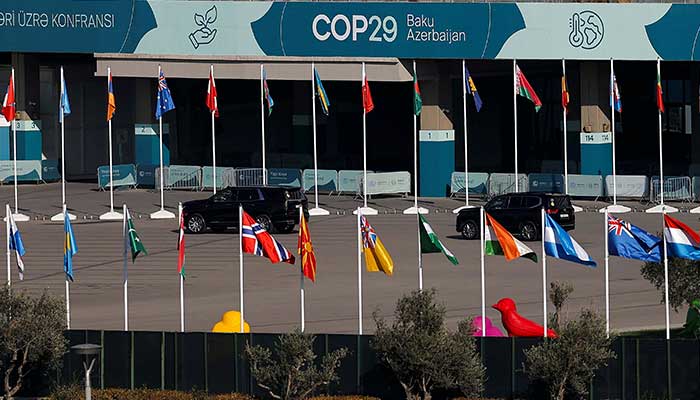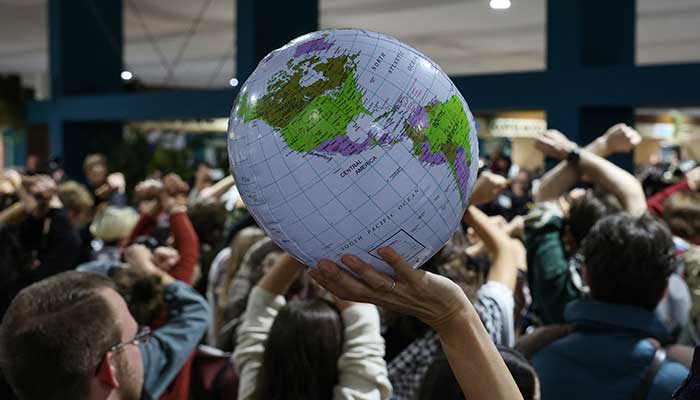
- Australia, EU and US agree to increase climate finance.
- EU countries want China and Gulf countries to join them in contributing.
- Low funding will affect their ability to reduce greenhouse gas emissions.
BAKU: The European Union, the United States and other rich countries at the COP29 climate summit, according to sources, have agreed to increase their offer of a global financial target to $300 billion per year by 2035.
The summit, which was due to culminate on Friday, ran into overtime as negotiators from nearly 200 countries – who must adopt the deal by consensus – tried to reach agreement on the global climate finance plan for the next decade.
The change in stance came after a proposed $250 billion deal, drafted by Azerbaijan’s COP29 presidency on Friday, was described by developing countries as insultingly low.
It was not immediately clear whether the revised position of rich countries had been communicated to developing countries at COP29, and whether it would be enough to win their support.
Five sources with knowledge of the closed-door discussions said the EU had agreed to a higher figure. Two of the sources said the United States, Australia and Britain were also on board.
A spokesperson for the European Commission and an Australian government spokesperson both declined to comment on the negotiations. The US delegation to COP29 and the UK Department of Energy did not immediately respond to requests for comment.
Delegates were awaiting new draft agreement text on climate finance on Saturday after negotiators worked through the night to bridge wide differences between their positions.
The COP29 negotiations have laid bare divisions between wealthy governments constrained by tight national budgets and developing countries reeling from the skyrocketing costs of storms, floods and droughts fueled by climate change.
The new target aims to replace the previous commitment by developed countries to provide $100 billion in climate finance per year to poorer countries by 2020. This target was reached two years late, in 2022, and expires in 2025.
Negotiations
Any deal would require agreement on more than just the overall amount.
Negotiators worked throughout the two-week summit to answer other crucial questions about the goal, including who is asked to contribute and how much of the funding is in the form of grants rather than loans.
The list of countries required to contribute – about two dozen industrialized countries, including the United States, European countries and Canada – dates back to a list decided during the 1992 UN climate negotiations.

European governments have asked other countries to join them, including China, the world’s second-largest economy, and oil-rich Gulf states.
The recent election of Donald Trump as president of the United States, who called climate change a hoax, has cast a shadow over the negotiations in Baku.
Negotiators from other wealthy countries expect the world’s largest economy to not contribute to the climate finance target during Trump’s next four-year term.
A broader goal of raising $1.3 trillion in climate finance a year by 2035 — which economists say is the sum needed — was included in the draft deal released Friday and would include financing from all public and private sources.
Landing on table
Poorer countries have warned that a weak financial deal at COP29 would damage their ability to set more ambitious targets to reduce greenhouse gas emissions that cause climate change.
Sierra Leone’s Environment Minister Jiwoh Abdulai told Reuters that the initial proposal for a $250 billion target for 2035, starting on Friday, would not represent a real increase in support if the inflation is taken into account.
“We spent three years negotiating these numbers. And after three years we got nothing,” Abdulai said, adding that the agreement needed to be drafted in stronger terms to facilitate access to financing. .
On Saturday, the group of least developed countries participating in the UN negotiations, which includes Sierra Leone, will present its red lines for an agreement to the president of COP29.
A withdrawal from negotiations “should be on the table”, he told Reuters, adding: “All options should be on the table.”
